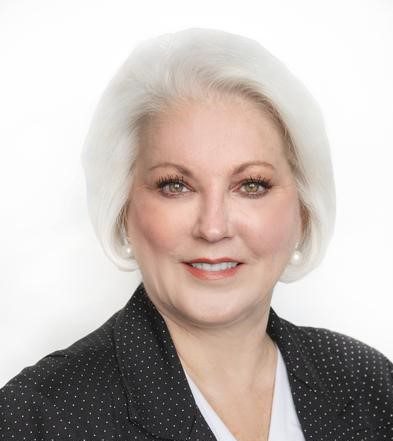Abstract
Current trends in veterinarian demographics, ownership rates, and corporate consolidation have left many small practices with aging owners and no viable succession plan. As a result, the frequency of veterinary practices closures is increasing. Closing a practice is a complicated endeavor and not one that should be undertaken lightly. This article is meant to serve as an introduction to many of the complex issues surrounding closing this process—including ones related to employees, clients, medical records, insurance accounts receivable, controlled substances, equipment, inventory, and facilities—and to provide guidance on steps to take while navigating those issues.
Introduction
In 2021, Dr. Robert Bogan, a 74-year-old mixed animal practice veterinarian in Faribault, MN wanted to retire. Unable to sell his practice after five years of looking, Dr. Bogan resorted to something almost unheard of: he offered to give his practice away; his clinic, equipment, pickup, and even the clinic cat Annie were all part of the deal1.
Veterinary professionals are getting older, ownership rates are dropping, and many older veterinarians are retiring with no one willing/able to buy their one to two doctor practice that falls below the $1.2 million threshold set by many corporate consolidators2. As a result, Dr. Bogan’s situation is becoming more common. Either you give your practice away or close the practice.
Fortunately, Dr. Bogan found a taker, Dr. Zach Adams, a recent graduate from nearby Iowa State University, but not everyone would be as lucky. The reality is, a larger number of veterinary practices are closing their doors, but it is not as simple as locking the doors and putting up a sign. The following is a how-to guide for closing a veterinary practice, highlighting key issues to consider and ensuring that the practice is closed legally and effectively.
Decision
Making the decision to close a veterinary practice is a difficult one. Typically, plenty of blood, sweat, and tears have been put into making the practice a success, and so to retire/walk away can come with a lot of emotion. Before deciding to close a practice, we recommend meeting with an advisor or broker to explore the sale of the practice. While there are typical benchmarks that consolidators use in purchasing decisions, they may be willing to go outside of those benchmarks if the practice holds significant strategic value for them. There is no way of identifying this without exploring the market. Plus, there are still private buyers in the market who may be specifically looking for practices that corporations aren’t interested in as a way of avoiding the high premiums that corporate buyers often pay. By finding a buyer, you can provide continued employment to your staff and provide your patients with the benefits of receiving care in a familiar place with familiar staff.
If you still have no desire to sell or are unable to sell your practice, meet with legal counsel and establish the appropriate procedures and documents needed before announcing your closure, including to your staff.
Announcement
We recommend telling staff, clients, and the public that the practice is closing all within a short time frame. No matter how tight-lipped your staff, word tends to get out quickly, and it is much better for word to come with the official documentation and procedures to save you and the staff time answering repeated questions, and this also saves clients from the anxiety of being uncertain of the continued care for their animals. Notify staff first and train them on how to manage questions related to the closing of the practice. Express gratitude toward the staff for helping through the transition and offer as much support as possible in finding new employment. Once everyone is trained, announce the closing to your clients and to the public.
Employees
How to manage remaining employees depends largely on what type of employee they are, whether or not they are under contract, and whether or not you want to offer severance.
Veterinarians are often under contract, and their contracts may dictate that certain notice be given to them in advance of terminating their contracts. This may limit how quickly the clinic is able to close or it may require you to keep paying the veterinarian past the closing of the practice. Other contracts may have the veterinarian locked in for a yearlong period with the company only being able to terminate for cause. In this instance, discussing the option of severance pay to waive the remainder of the contract may be reasonable.
Veterinarians may have a non-compete in place as part of their contract even if they are an at-will employee. Typically, there is not language in these non-competes that waives them in the event of termination although some may. So, read the non-compete and interpret if the remaining veterinarians are bound by the non-compete, and then decide if the closing business wants to waive the non-compete. The non-solicitation may be more complex; if there are multiple doctors remaining and they plan to go to different practices, competition for clients and remaining employees may occur, so it is recommended to keep the non-solicitation of employees and clients in place.
Non-veterinarians in the practice may have less complex contract situations, but they are an equally important part of the dismantling process. Commonly, non-veterinarians are at-will employees without contracts. Employees without contracts are not required to receive severance pay under the Fair Labor Standards Act (FLSA)3, but it is still something the company can consider when appropriate. Severance benefits may include a salary continuation based on years of service, paying COBRA health care premiums, or providing time-off flexibility for employees to search for a new job before the closing of a practice.
Clients and Pet Medical Records
Dealing with clients and the medical records are perhaps the most important part of closing a practice. Clients may have had many pets undergo a lifetime of care, and ensuring clients are taken care of throughout the closing process is one last piece of high-quality service you can provide. The medical records of their pets are equally as important. These records will be needed to ensure continued quality care of the patients and often are surrounded by many legal guidelines that must be navigated.
First, it is important to stop accepting new clients. You can decide to stop accepting new clients before announcing your closing, but the staff and clients may catch wind of what is going on before proper documentation and procedures are in place.
In the AVMA Principles of Veterinary Ethics4, it is prohibited to abandon a patient with ongoing medical issues. Under the annotated principle 2 it states, “If there is an ongoing medical or surgical condition, the patient shall be referred to another veterinarian for diagnosis, care, and treatment. The former attending veterinarian shall continue to provide care, as needed, during the transition.”
This is an important piece in dismantling any practice. Care should be taken to identify any patients with ongoing medical issues. Attempt to complete as many as possible before closing the practice. For those that are unable to be completed, they need to be referred to a veterinarian capable of overseeing the ongoing medical issue and appropriate information pertinent to the case must be provided. This can be accomplished by ensuring the client has a complete copy of the medical record prior to the closing of the clinic, and the client has a list of local veterinarians deemed capable of managing the condition.
Certain states have specific requirements about how owners are notified of a practice closing, mainly in regard to what is done with their medical records. New Jersey offers one of the more comprehensive examples, per Title 13, Chapter 44 – 4.9 (i) of the New Jersey Administrative Code.
“Whenever a veterinary practice is to be closed due to the retirement or death of the veterinarian in charge, or the practice will be closed for more than six consecutive months, the licensee or the executor or administrator of the licensee’s estate shall:
1) Establish a procedure by which patients may obtain treatment records or agree to the transfer of those records to another licensee who is assuming the responsibilities of that practice;
2) If the practice will not be attended by another licensee, publish a notice of the cessation and the established procedure for the retrieval of records in a newspaper of general circulation in the geographic location of the licensee’s practice, at least once each month for the first three months after the cessation;
3) Notify the Board, in writing, of the impending closure and the established procedure for the retrieval of records;
4) Make reasonable efforts to directly notify the owner of any patient treated during the six months preceding the cessation of the practice to provide information concerning the established procedure for retrieval of records;
5) Conspicuously post a notice on the premises of the procedure for the retrieval of records for at least one month prior to the cessation of the practice; and
6) Arrange for the storage of any records that have not been retrieved by patient owners for one year from the date the practice closes.”
Interestingly, with section 6, New Jersey’s veterinary medical records typically have to be kept for five years since the last treatment or examination, but it appears an exception has been made for retiring or closing of a practice. If your state’s regulations don’t specify, default to the standard record retention for your state (quick reference available here).
For comparison purposes, in Pennsylvania, Title 49, Chapter 31.22 subsection 10, it states that “A veterinarian shall notify clients, in writing, at least 30 days prior to the date of a planned retirement or closing of a veterinary practice. The written notice must include instructions on how to obtain copies of veterinary medical records from the veterinarian or other custodian of the records and the name, address and telephone number of the person purchasing the practice, if applicable.” The records must then be kept for three years after the date the veterinarian retires or the practice is closed. This is consistent with the state’s law of keeping the records for three years after the patient is last seen by the veterinarian.
Written Notice
Most states require “written notice” to clients about the closure of a veterinary practice, so it is important to explore that definition. Under most state’s laws, “written notice” generally constitutes a letter sent to each client’s address. Emails can potentially count but only if there is a way of confirming the email has been received5. This can be accomplished through a reply (by email, letter, or in-person visit) that speaks to the content of the email. Read or delivery receipts are generally not sufficient proof. A sign posted on the premises is typically not sufficient notice, either, as it is difficult to confirm receipt by the clients.
Where to Store Records
Say you live in a state where you are required to hold your records for three to five years after closing. What are you supposed to do with those medical records all that time? Paper records can take up a lot of space and, even if you have transitioned to electronic records, who is going to sort through the record every time you get a request from the patient for the next three years? If this burden is something the practice owner is unable or unwilling to take on, there are services available that offer storage and management of medical records. Most focus on human medical records but can also manage veterinary medical records. When searching for services, be sure they offer the ability for the client to retrieve records, and that they will act as the custodian of the record, including providing appropriate confidentiality and destroying the record after the appropriate time frame. Many of the services do charge a fee to the client so, in the letter detailing the process of how they can retrieve their records, it is good practice to advise them of the fee and give them a reasonable amount of time to pick up a copy of the record from the clinic before the records are transported.
Fees
If it is decided that the practice owner, manager, or other employee shall remain the custodian of the records for the appropriate amount of time after closing, it may be possible to charge a fee to cover the time and expense associated with retrieving and/or mailing the records. Check with your state board for what fees are allowed. For example, in New Jersey, a licensee may charge a fee for reproduction of records, which shall be no greater than $1.00 per page or $100.00 for the entire record, whichever is less. If the record requested is less than ten pages, the licensee may charge up to $10.00 to cover postage and the costs associated with retrieval of the record (N.J. Admin. Code § 13:44-4.9).
Insurance
Every insurance plan is different and terminating the plan may involve fees or require additional steps taken by the practice owner. It is best to contact the provider of each specific plan, discuss the situation, and individually determine how to deal with each plan.
Health Insurance
If there is any type of health plan in place for employees, it is important that steps are taken to ensure they are prepared for when the practice’s health insurance ends. The Consolidated Omnibus Budget Reconciliation Act (COBRA) requires most group health plans to provide temporary continuation of group health plans that might otherwise be terminated 6. This commonly used option applies to all group health plans for private sector employers with at least twenty employees, but many states have similar laws in place for employers with less than twenty employees (mini-COBRA). An important feature of COBRA: the health plan must continue to exist for employees to be eligible for coverage. So, if the health plan ceases to exist once the practice closes, employees cannot get COBRA. However, if the premium has been pre-paid for a period that exists past the closing date, employees would be eligible for COBRA until the end of that period. The Department of Labor has a guide for employees regarding COBRA that details when they must enroll, benefits of the coverage, alternatives to COBRA, and more.
Another option for employees would involve searching for healthcare options available through healthcare.gov. There are several options available for unemployed individuals, and they are also eligible for a special enrollment period, meaning that they can enroll in plans outside the normal enrollment time, provided they apply within sixty days of becoming unemployed7.
What if I get sued after the business is closed?
You may be concerned about what happens if a client or employee attempts to sue you after the practice has closed for something that happened before the closing. In this scenario, what type of insurance you have is important. There are claims-made policies in which the insurer only covers claims made during the policy period. In this scenario, while normally you wouldn’t be covered for a claim made after closing, you can apply for a tail policy, meaning the insurance company would still help cover the claim.
On the other hand, in occurrence-based policies, only the date of the incidence of the claim matters. If the client is suing you for something that happened when the practice was still open, because the event occurred during the coverage period, the insurance company will still help cover the claim. For example, AVMA PLIT is generally occurrence-based.
Practice Assets
Although notifying staff and clients of the closing and helping them through the transition can be the most emotionally challenging aspect of dismantling a practice, dealing with the leftover assets remaining in the practice can be among the most time consuming and frustrating tasks. Creating a checklist and being methodical while also possibly seeking out professional help can save time, money, and stress in the long run.
Accounts Receivable
Just because the doors are closing doesn’t mean the clients’ debt is washed clean. When sending out notices of closure, it may be a good idea to include an additional note to clients with any outstanding balances. Give the clients a due date (probably the closing date of the practice) and advise what will happen if they don’t pay. A collection agency could be used post-closing to follow up with unpaid clients.
Controlled Substances
It is important to contact the U.S Drug Enforcement Administration (DEA) when deciding to close a practice. If the retiring veterinarian has an active DEA number and wishes to close it, they can do so by sending written notice to the DEA asking for deletion of their number on a certain date. If the retirement will take place shortly before the renewal date, look on the renewal form for this notation: “non-renewal due to retirement” 8. The DEA must also be contacted for guidance on how to destroy or transfer remaining controlled substances in the practice.
Equipment & Inventory
There is no shortage of companies that are looking to buy used medical equipment and unused medical inventory. Using a search engine can quickly help you locate companies that would be willing to provide a quote on your equipment and/or inventory. It is also possible that the company rep that sold you the equipment or inventory may know of a company buy-back program. Certain states do have laws regarding registration of equipment, which may impact how you can sell or dispose of the equipment. For example, in New York, all x-ray machines need to be registered with the New York State Department of Health. If you are no longer using the machine for any reason (such as selling or scrapping), you must notify the department by filling out a form on their website 9.
Your equipment may or may not also be tied to a reference lab contract. Reach out to the reference lab to determine the process for ending the contract. Like other contracts, there may be an early termination clause and/or a fee associated to end the relationship early.
Facility
If the facility is leased, examine the contract to determine reasons for which early termination of a contract can occur. If there is no provision for early termination, a buyout can often be negotiated. After negotiating, the tenant and the property owner must sign a deed of surrender to formally end the lease.
When land is owned by the practice or the practice owner through a separate entity, it may be possible to rent the facility, but veterinary clinics are highly specialized facilities, so that is an unlikely outcome. More likely, the facility can be destroyed, and the land held as a real estate investment, or it can be sold. A real estate appraiser can help you to better understand the value of the land with and without the facility and possibly advise on potential courses of action. It is also important to reach out to your state’s building commission to ensure the building and land is up to code.
Regardless of the plans for the facility, it is important to notify the utility company and postal service to discontinue service and coordinate mail forwarding, respectively.
Ancillary Services
Ancillary services like boarding or grooming may have the potential to outlast the practice. Exploring the option of keeping the boarding facility open or allowing the groomer at the practice to keep the client list and move to a new facility may help ease clients in the transition and allow certain employees to maintain a revenue stream.
Outstanding Circumstances (e.g., death)
In the unfortunate event of an owner’s death, the state that the practice is located in as well as the structure of the practice (e.g., sole proprietorship, professional corporation, etc.) play a major role in what happens next. If the practice is in a state where veterinary practices are not allowed to be run by a non-veterinarian (“a regulated state”) unless the beneficiary of the estate is also a veterinarian, the estate is most likely unable to maintain ownership and operating responsibilities of the practice. Most states do allow for a transition period that will allow the estate to continue operating the practice (if possible) while they facilitate ownership transfer to a licensed party. In New York, this time frame is six months10. The mechanics of how ownership is assumed are often spelled out in any agreement created at the formation of the entity, so it is advisable to seek counsel to help interpret the agreement and any applicable laws.
References
- Huppert, A. B. (2022, February 22). Rural veterinarian who offered to give away his practice gets what he wanted: A successor. kare11.com. Retrieved July 25, 2022, from https://www.kare11.com/article/news/local/land-of-10000-stories/rural-veterinarian-who-offered-to-give-away-his-practice-gets-what-he-wanted-a-successor-blue-earth/89-2b4d7995-1b3f-47b9-a8a0-9d746ea0c502
- Nolen, S. (2018, November 14). The corporatization of veterinary medicine. American Veterinary Medical Association. Retrieved July 25, 2022, from https://www.avma.org/javma-news/2018-12-01/corporatization-veterinary-medicine
- Severance Pay | U.S. Department of Labor. (2019). Dol.gov. https://www.dol.gov/general/topic/wages/severancepay
- Principles of veterinary medical ethics of the AVMA. (2019). American Veterinary Medical Association. https://www.avma.org/resources-tools/avma-policies/principles-veterinary-medical-ethics-avma
- Can an Email serve as “Written Notice?” (2015, June 3). Martin|Hild, P.A. Can an Email serve as “Written Notice?” (2015, June 3). Martin|Hild, P.A. https://www.martinhild.com/can-an-email-serve-as-ldquowritten-noticerdquo.html
- (2020, September). An employees guide to benefits under COBRA. Department of Labor. https://www.dol.gov/sites/dolgov/files/ebsa/about-ebsa/our-activities/resource-center/publications/an-employees-guide-to-health-benefits-under-cobra.pdf
- Get Marketplace health coverage outside Open Enrollment only with a Special Enrollment Period. (n.d.). HealthCare.gov. Retrieved July 25, 2022, from https://www.healthcare.gov/coverage-outside-open-enrollment/special-enrollment-period
- Butcher, T. (2016, November 23). Closing a Medical Practice, Part 1. Total Health Law Blog. https://www.totalhealthlaw.com/closing-practice-part-1/
- Damiani, A. (2022). Disposition of X-Ray Equipment. NY Department of Health. https://www.health.ny.gov/forms/doh-2126.pdf
- Death of a Veterinarian: Implications of the Veterinary Practice. (2016). New York State Veterinary Medical Society. https://cdn.ymaws.com/www.nysvms.org/resource/collection/E45CA734-8B73-4255-B861-5BED0FCBBAC9/deathofveterinarian.pdf









